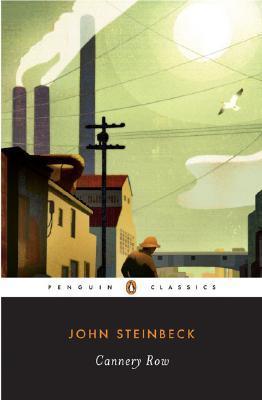I’ve just been through one of the longest good book ‘droughts’ in my reading career. In the end I decided to reach for a classic, sometimes the only way out, and grabbed hold of John Steinbeck’s Cannery Row. It’s a short book that is more like a portrait of a community than a linear narrative, but within it are sublime little stories, descriptions of people, places and atmosphere that only an old hand like Steinbeck can conjure up.
Cannery Row is set in the Californian fishing and sardine cannery town of Monterey during the Great Depression. People are dirt poor, even those with a job. Doc runs Western Biological Laboratory, a one-man shop selling marine creatures to museums and university research labs. He’s the wisest and kindest (and smartest) man in town and serves as a sort of moral compass for the community.
There are some truly unforgettable characters in this book, such as Lee Chong, who runs the local grocery shop where ‘within it’s single room a man could find everything he needed or wanted to live and be happy’, except, that is, the one thing you could find across the road at Dora’s, the local brothel. Or Mrs Mallory, who, upon moving into a rusty old boiler with her husband, insists on buying curtains for her windowless abode. There’s the cunning Mack, an unemployed petty criminal, and his band of merry men who lives off the credit and ‘goodwill’ of Mr Chong and others who fear their reprisals. And then there’s the halfwit Hazel who harvests sea creatures for Doc, whenever he doesn’t follow Mack’s sly plans blindly.
Hazel grew up – did four years in grammar school, four years in reform school, and didn’t learn anything in either place. Reform schools are supposed to teach you viciousness and criminality but Hazel didn’t pay enough attention. He came out of reform school as innocent of viciousness as he was of fractions and long division.
This novel came about in 1945 after some war-weary soldiers asked Steinbeck to write a something funny that didn’t have anything to do with war. Despite the desperate poverty of most of the characters and some sad stories, this book made me smile, even happy. In Cannery Row even the baddies have buckets of charm. There’s a strong sense of survival, accepting one’s destiny and making the best of it. An encouragement, perhaps, from Steinbeck to his soldier readers.
Cannery Row is published by Penguin Modern Classics, 196 pages.
PS The audio book version of this story, read by Trevor White and available on Audible, is excellent.





